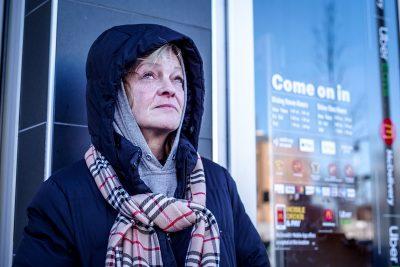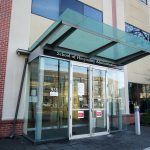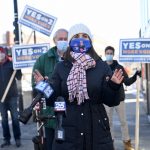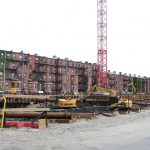Boston’s homeless are among those at highest risk of contracting the coronavirus, as self-quarantining is not an option for most of them. Zoning in on this issue, the City of Boston has launched an initiative to test all homeless individuals in Boston’s shelter systems for COVID-19.

Comprehensive testing of local unhoused communities is essential to help those most at risk, Mayor Marty Walsh said in a press release.
“This is a big step forward in protecting our most vulnerable populations,” Mayor Walsh said. “Universal testing in Boston’s homeless community is critical to allow us to provide individuals with the targeted care they need.”
Partnering with the City of Boston to provide this targeted care are the Boston Health Care for the Homeless Program and Boston Public Health Commission, in conjunction with homeless service providers Pine Street Inn and St. Francis House.
The City has also published a comprehensive list of resources, including emergency shelters, assistance for families and meal programs for those experiencing homelessness during the pandemic.
To aid with testing, 1,000 additional tests for homeless individuals have been donated from Orig3n, a Boston-based DNA testing company.
Vicki Ritterband, a BHCHP media coordinator, said the nonprofit is testing 100 people daily and anticipates plenty of positive tests.
As of Wednesday, 1,598 homeless individuals have been tested and 560 have tested positive, according to test numbers from BHCHP. This amounts to about 35 percent of participants confirmed with COVID-19.
To ensure social-distancing, Ritterband said shelters are working to relocate some of their guests to less crowded locations.
“The shelters are decongesting, which means spreading their guests out,” Ritterband said. “The Pine Street Inn has sent a lot of people to Suffolk University dorms.”
Barbara Trevisan, vice president of marketing and communications for Pine Street Inn, wrote in an email that the Inn is transferring guests who test positive.
“Pine Street has already tested a number of our guests,” Trevisan wrote. “Those who test positive are going to off-site quarantine locations.”
Infected guests are being sent to one of three locations with beds dedicated to COVID-19 patients: Boston Hope Medical Center, medical clinic Barbara McInnis House or a group of newly-erected tents in the South End.
But this extra work to ensure safety and care comes at a great cost, Trevisan wrote.
“Food, staffing, and cleaning protocols have totaled about $250,000 [per] week above budget,” Trevisan wrote. “We have reached out to donors who have been very generous in response, but we expect these protocols could go on for a while.”
BHCHP has also taken a financial hit, Ritterband said. It is losing more than $1 million a month.
The main contributor to BHCHP’s financial burden, Ritterband said, is its focus on caring for the unhoused. The almost complete reduction in reimbursable operations has limited their avenues for income.
“We’ve reduced the services that are reimbursable by insurance,” Ritterband said. “We’ve reduced our primary care operations to like 10 percent of what [they] were, and those are the services that really bring in the money.”
Beyond finances, Boston Health Care for the Homeless has accrued another cost. As of Monday, 28 staff members have tested positive. Ritterband said 1,000 masks lasts about five days and it can be difficult to retain enough gear to protect staff on the front lines.
“We have received a lot of donations from both individuals and philanthropic organizations so we’re really thankful for that,” Ritterband said. “But we and the other homeless providers really need more financial support.




